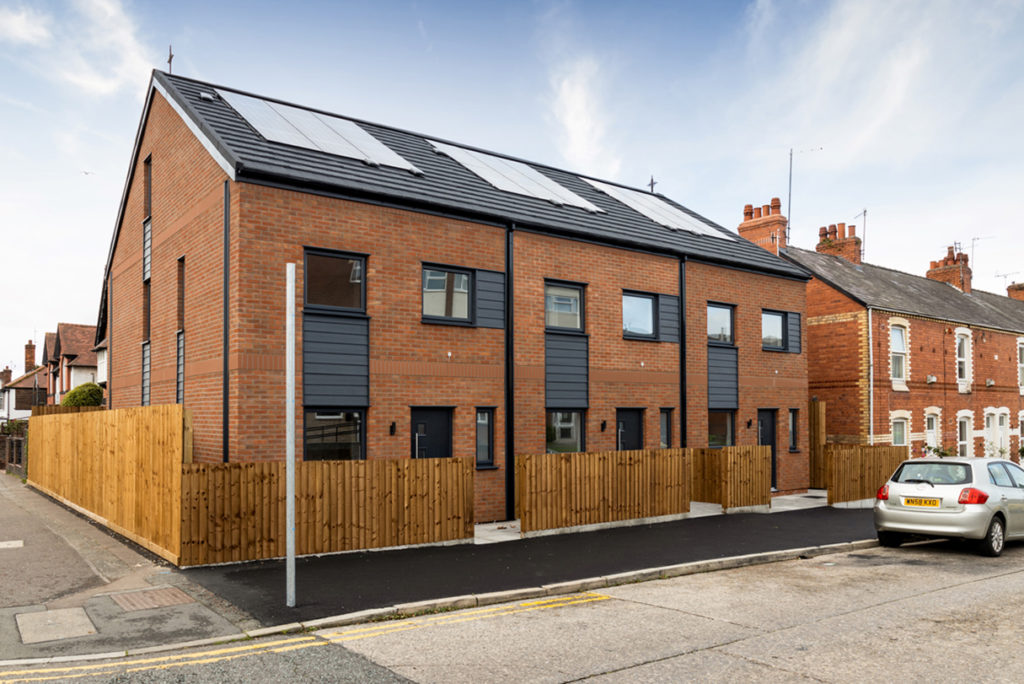
Funding sustainable social housing is crucial to meet net zero targets and increase energy efficiency in homes, says Marcos Navarro, Director & Sustainability Lead for Housing Finance at NatWest.
Reducing emissions from homes and buildings is one of the most effective ways the UK can achieve its 2050 net zero target. The UK has approximately 30 million buildings, including some of the oldest building stock in Europe, which creates an immediate challenge for sustainability. Most emissions from buildings result from heating systems, with the indirect emissions from heating buildings making up approximately 78% of all buildings emissions and 21% of all UK emissions.(1)
The demand to accelerate the UK’s transition to net zero comes as a cost-of-living crisis deepens, with the energy efficiency of homes being a huge conversation. Retrofitting properties to reduce energy bills has become a huge talking point recently, particularly for the most deprived areas of society, as energy prices soar. With this urgency, banks and other financial providers must offer tailored, cost-effective financial and non-financial solutions for customers to support a just transition.
At NatWest, we have provided funding to support the delivery of affordable housing since the 1990s and currently provide more than £14bn of loan commitments to housing associations across the UK. We provide traditional funding facilities, such as term loans and revolving credit facilities, but are also a market leader in supporting housing associations to access funding via the debt capital markets.

Sustainable social housing
Although the social housing sector is ahead of the private sector when it comes to average energy performance certificate (EPC) ratings, it still has a huge number of properties that aren’t
sustainable. In England, there are approximately 4.1m social homes and 1.6m of these are below EPC C.
The 2019 Conservative manifesto promised a £3.8bn social housing decarbonisation fund over 10 years, and the Government’s latest British Energy Security Strategy paper hints at it investing over £6bn on decarbonising the nation’s homes and buildings. Whilst this level of public funding is a great start, it still leaves a massive funding gap. A report produced by Savills suggests that to achieve EPC C by 2030 and net zero by 2050 (in England) it will cost the housing association sector between £36bn and £58bn.
Given the UK Government is still grappling with the cost to service the existing level of national debt (equivalent of over £1,200 per person this year), it seems unlikely that the Government will be making any significant additional commitments soon.
Government and local authorities will play a part in addressing this; however, the reality is that most of the funding will still come from the private sector. Therefore, NatWest (and all banks and investors) must continue to work with individuals and organisations to ensure they have as many viable funding solutions available to them as possible.
Collaboration is key
There won’t be one single solution to deliver greener homes. The challenge is complex and requires multiple solutions to be utilised and developed, so it’s important to promote collaboration across organisations, sectors, and local and central government, to support individual and collective sustainability goals.
NatWest is involved in a wide range of working groups looking at ways the UK can improve the sustainability of its built environment. Findings from these working groups are being used to inform the ways we support our customers. For example, the bank has recently helped Salix Homes finance its flagship Greenhaus development in Salford, Greater Manchester. It is currently being constructed to Passivhaus standards, a method of low-energy construction to uild thermally efficient, ‘green’ homes with minimal energy required to provide heating and hot water.
We also recently launched a ‘Sustainable Homes and Buildings Coalition’(2), with British Gas, Worcester Bosch, and Shelter, to improve the energy efficiency of UK buildings and address key blockers to meeting net zero. Citizens Advice is also acting in an advisory capacity to the
Coalition on the needs of, and challenges faced by, consumers in the transition. The Coalition’s first report ‘Home is Where the Heat is’ (3) was published last year.

Executive Director of Finance at Great Places Housing Group; Alastair Harper, Head of Public Affairs at
Shelter; Marcos Navarro, Director and Sustainability Lead for Housing Finance at NatWest
Social value
NatWest’s is committed to being a leading supporter of UK businesses, helping to address the climate challenge. We are taking a proactive role in supporting customers and local communities to transition to net zero. We have committed £100bn in additional Climate and Sustainable Funding and Financing (4) by the end of 2025, and our sustainable commitments are detailed in our Climate-Related Disclosures Report.
Alongside financial support, we acknowledge the bigger socio-economic impact of helping property owners to make better sustainable choices. Supporting the retrofit agenda and the delivery of greener homes will help to tackle fuel poverty, reduce the impact and costs on the NHS and save lives.
It’s estimated that of the 63,000 excess winter deaths in England and Wales in 2020/21, 8,500 of them were due to cold homes. Improved winter warmth and lowered relative humidity have proven benefits for cardiovascular, respiratory, and mental health. The National Energy Action also found that for every £1 spent on retrofitting fuel-poor homes, an estimated £0.42 is saved in NHS spending.
Retrofitting UK housing will also create jobs in all regions of the UK, and in sectors hit hardest by the recession. Cambridge Econometrics estimate that raising every home in the UK to EPC level C would sustain at least 108,000 new jobs annually between 2020 and 2030.
The future of sustainable housing often means different things to different people. But for me, it means providing safe, secure and affordable housing that has a positive impact on our environment.
The provision of sustainable housing should consider the voice of the resident, and the local community and ensure that properties are well managed, and communities are supported, elping to reduce inequality, and helping communities to prosper.
New and existing developments should promote increased levels of biodiversity, natural habitats and ecological sustainability and prevent the risk of climate change. Providing housing of this nature will protect tenants’ health, improve well-being and can help individuals out of poverty, whilst also improving our environment.
1 https://assets.publishing.service.gov.uk/government/uploads/system/uploads/attachment_data/file/1033990/net-zero-strategy-beis.pdf
2 https://www.natwestgroup.com/news/2021/07/natwest-group-launches-sustainable-homes-andbuildings-coalition.html
3 https://www.natwestgroup.com/news/2021/10/homeis-where-the-heat-is.html
4 https://www.natwestgroup.com/news/2021/10/natwest-pledges-of-climate-and-sustainable-fundingfinancing.html
Header image ©blacksalmon/AdobeStock








